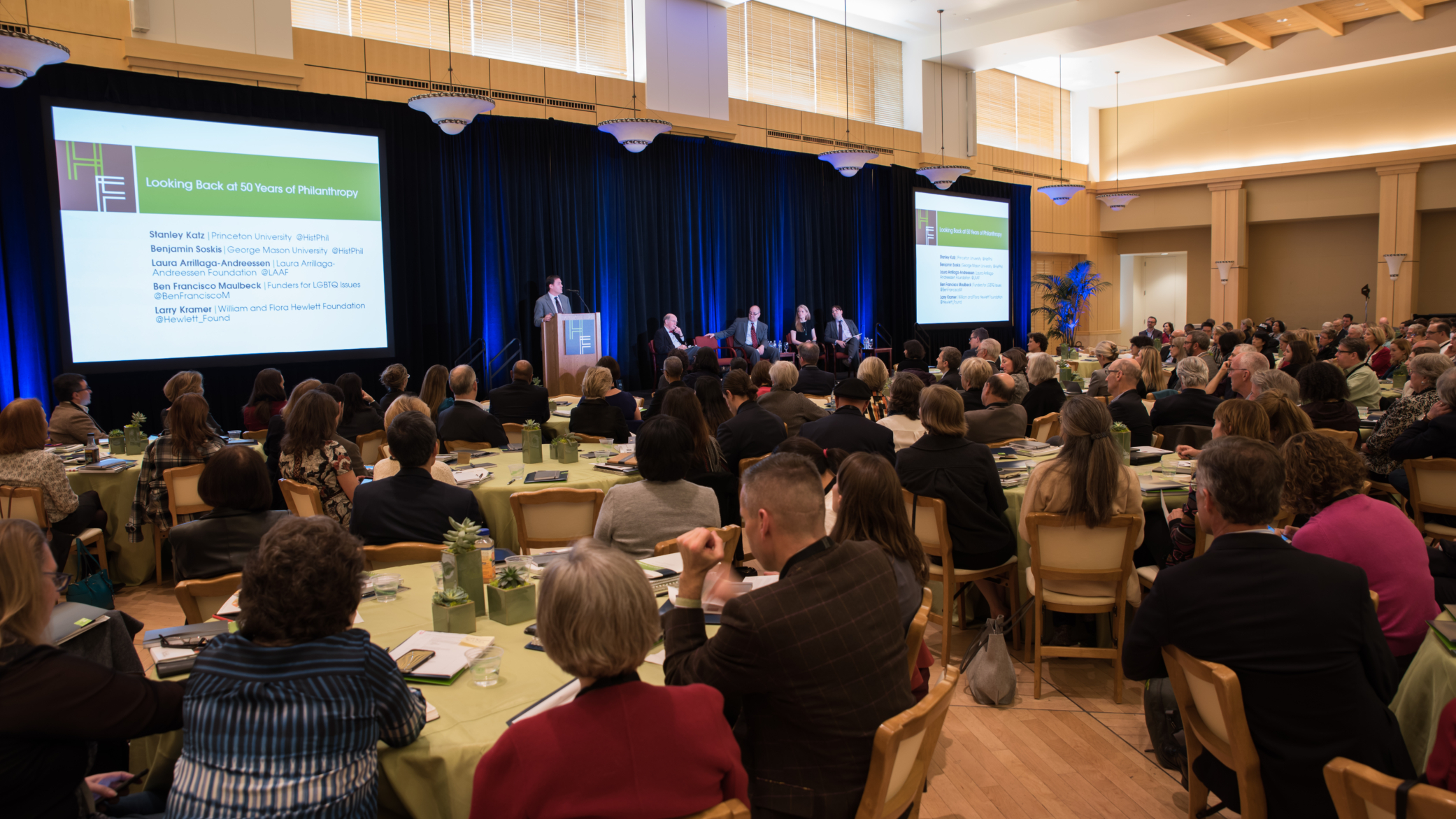How is the social sector adapting to solve the world’s most pressing problems? That’s the theme of a two-day symposium the Hewlett Foundation hosted at Stanford University recently to mark our 50th anniversary. Over 300 philanthropy professionals and nonprofit leaders from large and small organizations gathered to discuss the history and future of philanthropy, how to work together to balance power, voice and different interests to advance the common good. Speakers from the left and right offered competing thoughts, while the audience added their views on policies and activism. Below, Hewlett staff share their reactions to some of the panel discussions at the event.
Ruth Levine: 10 ideas from pathways out of poverty

Educate girls or help women have the number of babies they want? Make it easier for businesses to expand or give poor people cash? Advocate for more philanthropic funding or use your own resources on new ideas that you think have a chance of improving the lives and livelihoods of people living in poverty?
Those were the questions that about 300 philanthropy and nonprofit professionals wrestled with while playing the Gelt Complex, a simulation game we used in the “Pathways Out of Poverty” panel discussion at the Hewlett Foundation’s 50th anniversary symposium. Read more…
Matt Baker: An environmental program officer on the future of philanthropy

As someone who has worked on energy and climate for 25 years, one of the most heartening news to come out of the Hewlett Foundation’s 50th anniversary symposium was a new finding about what foundation presidents care about. Research from the Center for Effective Philanthropy reveals that over 200 foundation presidents think economic inequality and climate change are the two biggest issues philanthropy should address.
Climate change is by far the biggest problem of our time and if we do not address it, many of the other problems we seek to address will get much worse. Read more…
Christine Clark: Why I’m hopeful about women’s reproductive freedom

Since the presidential election in November, I have been approached often by friends, colleagues, or family members with sentiments along these lines: “I’ve been thinking about you and how difficult the next few years are going to be for reproductive health and rights.” This is because the focus of my work is on maintaining and advancing women’s reproductive freedom.
Anxiety about what will happen to this field of work remains high, especially after President Trump reinstated the Mexico City policy that bans U.S. foreign aid to organizations that discuss abortion with people they serve. Read more…
Fay Twersky: 7 lessons in pressing forward in the social sector

Learning is a core value at the heart of the Hewlett Foundation’s workplace culture and its approach to philanthropy, and a symposium with our peers and partners seemed like the best way to honor that tradition while addressing many open questions about the future of the social sector.
We had planned an event that brought together people with diverse views on tough social challenges, and with the foundation marking its golden anniversary, we had an implicit focus on the long arc of history. But with the symposium following on the heels of a divisive election that roiled the public, we had to ask ourselves: Is this the right thing for us to be doing right now? Read more…



